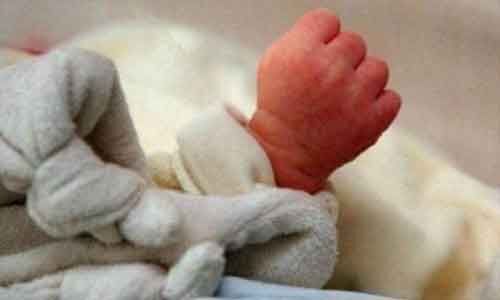- Home
- Medical news & Guidelines
- Anesthesiology
- Cardiology and CTVS
- Critical Care
- Dentistry
- Dermatology
- Diabetes and Endocrinology
- ENT
- Gastroenterology
- Medicine
- Nephrology
- Neurology
- Obstretics-Gynaecology
- Oncology
- Ophthalmology
- Orthopaedics
- Pediatrics-Neonatology
- Psychiatry
- Pulmonology
- Radiology
- Surgery
- Urology
- Laboratory Medicine
- Diet
- Nursing
- Paramedical
- Physiotherapy
- Health news
- Fact Check
- Bone Health Fact Check
- Brain Health Fact Check
- Cancer Related Fact Check
- Child Care Fact Check
- Dental and oral health fact check
- Diabetes and metabolic health fact check
- Diet and Nutrition Fact Check
- Eye and ENT Care Fact Check
- Fitness fact check
- Gut health fact check
- Heart health fact check
- Kidney health fact check
- Medical education fact check
- Men's health fact check
- Respiratory fact check
- Skin and hair care fact check
- Vaccine and Immunization fact check
- Women's health fact check
- AYUSH
- State News
- Andaman and Nicobar Islands
- Andhra Pradesh
- Arunachal Pradesh
- Assam
- Bihar
- Chandigarh
- Chattisgarh
- Dadra and Nagar Haveli
- Daman and Diu
- Delhi
- Goa
- Gujarat
- Haryana
- Himachal Pradesh
- Jammu & Kashmir
- Jharkhand
- Karnataka
- Kerala
- Ladakh
- Lakshadweep
- Madhya Pradesh
- Maharashtra
- Manipur
- Meghalaya
- Mizoram
- Nagaland
- Odisha
- Puducherry
- Punjab
- Rajasthan
- Sikkim
- Tamil Nadu
- Telangana
- Tripura
- Uttar Pradesh
- Uttrakhand
- West Bengal
- Medical Education
- Industry
Urine testing may help improve detection of disease in newborn babies

Researchers at the University of Alberta and the Universidad Autónoma de Zacatecas have conducted new research that will help health-care practitioners to more accurately diagnose disease and illness in newborn babies from urine samples.
The study examined the chemical composition of urine samples from 48 healthy, full-term newborn babies in the first hours after their birth, helping to establish a baseline for healthy chemical levels. Urine can be used to diagnose and monitor many conditions in infants, including metabolic disorders, genetic diseases, and birth-trauma effects.
The knowledge of normal metabolite values for neonates is key to establishing robust cut-off values to diagnose diseases, to predict the occurrence of new diseases, to monitor a neonate's metabolism, or to assess their general health status.
"The challenge is that we do not have reference points for healthy ranges of these chemicals in urine for newborn babies," explained David Wishart, professor in the University of Alberta's Department of Biological Sciences, Department of Computing Science, and Department of Laboratory Medicine and Pathology. "As a result, it's hard for doctors or clinical chemists to determine if a newborn is really sick or their chemical concentrations in urine or blood are normal."
The research team, led by Wishart in partnership with Yamile Lopez-Herndandez from the Universidad Autónoma de Zacatecas in Zacatecas, Mexico, used mass spectrometry to measure the concentrations of nearly 140 different chemicals in the babies' urine. The results quantified 86 chemicals that had never been measured in newborn urine before and another 20 chemicals that had never even been measured in human urine before.
"This research is really intended to help doctors and clinical chemists make more informed diagnoses with newborns using urine analysis," explained Wishart. "It provides reference data that every doctor or neonatologist around the world can freely use in order to compare sick newborns with their healthy counterparts."
For more details click on the link: http://dx.doi.org/10.3390/metabo10040165
Hina Zahid Joined Medical Dialogue in 2017 with a passion to work as a Reporter. She coordinates with various national and international journals and association and covers all the stories related to Medical guidelines, Medical Journals, rare medical surgeries as well as all the updates in the medical field. Email: editorial@medicaldialogues.in. Contact no. 011-43720751
Dr Kamal Kant Kohli-MBBS, DTCD- a chest specialist with more than 30 years of practice and a flair for writing clinical articles, Dr Kamal Kant Kohli joined Medical Dialogues as a Chief Editor of Medical News. Besides writing articles, as an editor, he proofreads and verifies all the medical content published on Medical Dialogues including those coming from journals, studies,medical conferences,guidelines etc. Email: drkohli@medicaldialogues.in. Contact no. 011-43720751


